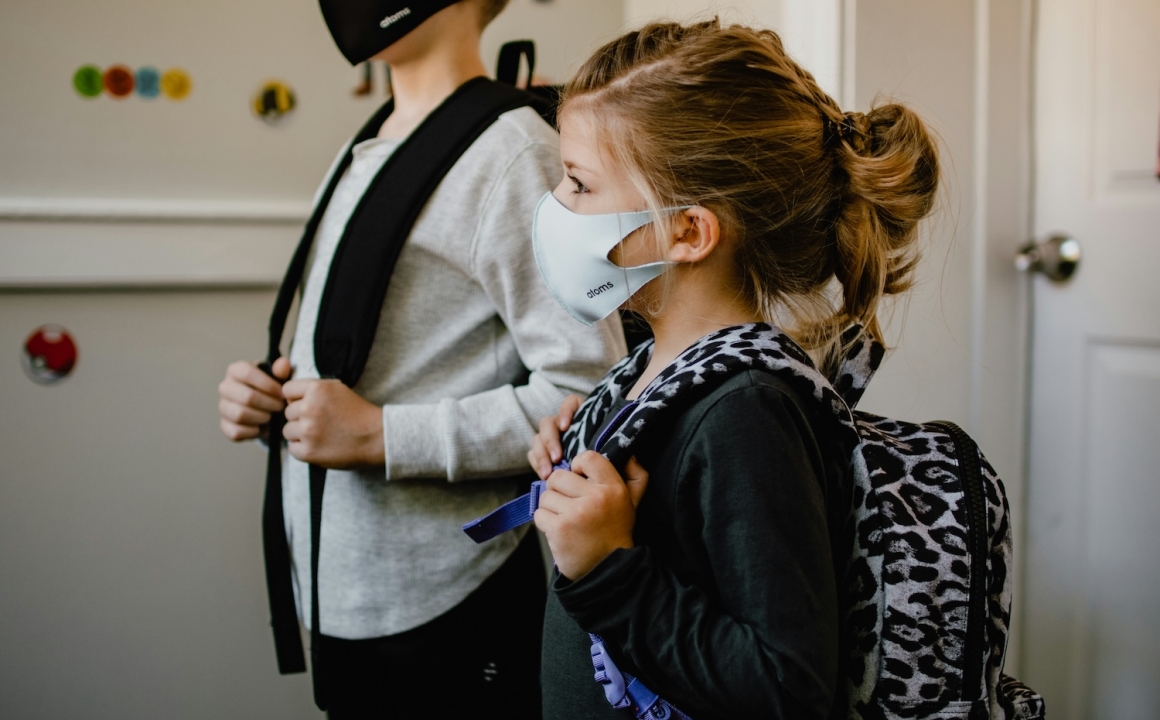Exploring the Emotional Consequences of Long COVID in Children

Holy Family University doctoral student in Counseling Psychology
The Bold Idea:
Long COVID's emotional and physical impacts on young students must be holistically addressed by families, educators, and medical professionals.

Long-term COVID-19, which is defined by symptoms that last weeks or months after the initial infection, is a growing issue for young children. As important and sometimes overlooked as the well-established physical symptoms, like fatigue and respiratory issues, are the emotional and psychological effects on children and teenagers. Post-acute consequences of SARS-CoV-2 infection are long-lasting COVID symptoms that continue to exist weeks or months after the original COVID-19 infection. This blog post explores how Long COVID affects the emotional health of young students, highlighting specific challenges and potential solutions.
Emotional and Psychological Impacts
Individuals with Long COVID frequently experience feelings of exclusion, isolation and frustration. They may feel lonely since they can't always keep up with their studies or interact with pals the way they used to. One study found that many children worry about falling behind in class or fitting in socially because their symptoms come and go without warning (Stephenson et al., 2022). The constant fatigue doesn’t help—it can make them moody or cranky, turning small problems into big ones.
According to Buonsenso et al. (2021), psychological distress, such as anxiety or sadness, affects about 68% of children with Long COVID, and the longer these symptoms persist, the more negatively they affect these children.
Educational and Identity Impacts
Long COVID affects more than just grades. Children might miss school a lot because they’re not feeling well, and that can make them feel disconnected from their classmates. It’s hard to feel like part of the group when the individual is in and out all the time (Morrow et al., 2023).
Research also shows that some children start to see themselves differently, as though they are not as capable as they used to be. According to Kikkenborg Berg et al. (2022), teenagers with Long COVID, in particular, feel "off" in comparison to their friends, which can undermine their self-esteem during those critical years when they are developing their identity. Feeling that the individual is losing a part of who they are is more significant than simply failing an exam.
Family Dynamics and Support Systems
Families have a significant role in this image. Parents are frequently under stress as they attempt to balance academics and doctor's appointments with concerns about their child's health. Children may become more worried as a result of that stress (Thomson & Morris, 2023).
Intervention
Using a holistic approach, individuals and their families, educators, and medical professionals must collaborate for interventions to be successful. Specific educational initiatives, flexible attendance policies, and hybrid learning options can all help sustain ongoing academic engagement while controlling symptom variances, as noted by Morrow et al. (2023). These strategies ensure that students can continue their education without incurring undue stress by meeting intellectual and emotional needs because they are dealing with Long COVID.
Programs for support among peers are still another important intervention. The research of Morrow et al. (2023), if utilized regularly, facilitated group talks among impacted students can lessen feelings of isolation, normalize experiences, and greatly enhance emotional results.
Conclusion
The emotional impact of Long COVID on young students represents a significant but often overlooked aspect of the pandemic's legacy. By recognizing these challenges and implementing appropriate support strategies, educators and healthcare providers can help mitigate long-term emotional consequences.
References
Buonsenso, D., Munblit, D., De Rose, C., Sinatti, D., Ricchiuto, A., Carfi, A., & Valentini, P. (2021). Preliminary evidence on long covid in children. Acta Paediatrica, 110(7), 2208–2211. https://doi.org/10.1111/apa.15870
Kikkenborg Berg, S., Dam Nielsen, S., Nygaard, U., Bundgaard, H., Palm, P., Rotvig, C., & Vinggaard Christensen, A. (2022). Long covid symptoms in SARS-CoV-2-positive adolescents and matched controls: A cross-sectional study. The Lancet Child & Adolescent Health, 6(4), 240–248. https://doi.org/10.1016/S2352-4642(22)00025-2
Morrow, A. K., Ng, R., Vargas, C., Jashar, D. T., Henning, E., & Malone, L. A. (2023). Postacute/long COVID in pediatrics: Development of a multidisciplinary pediatric post-COVID clinic. Frontiers in Pediatrics, 11, 1017738. https://doi.org/10.3389/fped.2023.1017738
Stephenson, T., Pinto Pereira, S. M., Shafran, R., de Stavola, B. L., Rojas, N., McOwat, K., ... & Ladhani, S. N. (2022). Physical and mental health 3 months after SARS-CoV-2 infection (long COVID) among adolescents in England (CLoCk): A national matched cohort study. The Lancet Child & Adolescent Health, 6(4), 230–239. https://doi.org/10.1016/S2352-4642(22)00022-0
Thomson, D., & Morris, S. (2023). Parental mental health and its impact on children with long COVID: A qualitative study. Child & Family Social Work, 28(4), 981–991. https://doi.org/10.1111/cfs.13045
